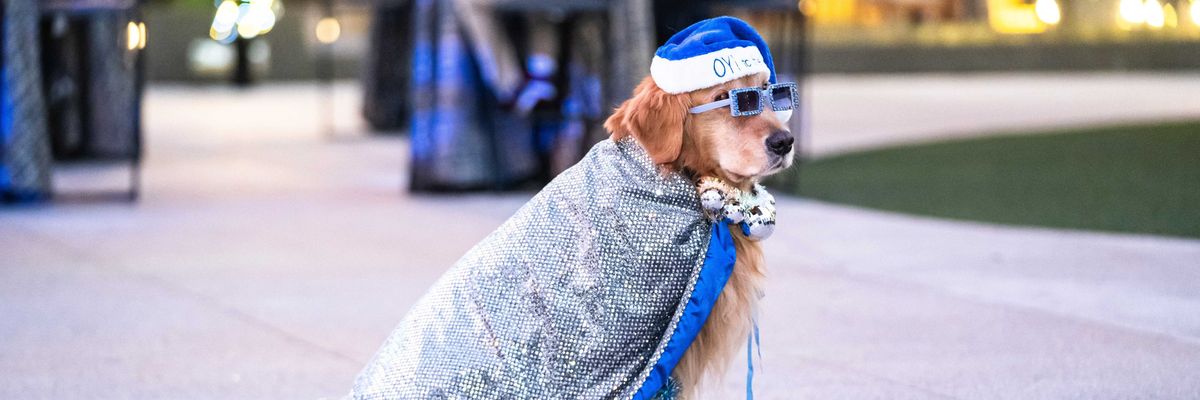If there remains any doubt that Jason Reitman has arrived as one of Hollywood’s most gifted young directors, Up in the Air, his incisive new comedy about a corporate hatchet man who flies the friendly skies from one soul-crushing gig to the next, should put it to rest.
Reitman, 32, was determined early on to follow in the footsteps of his father Ivan, who directed hit ’80s comedies including Stripes and Ghostbusters. He was equally determined not to hitch a ride on dad’s coattails.
So by the time he got to college he’d made a difficult choice.
Reluctant to pursue a career that might be tainted by the suspicion of nepotism, “I was taking all premed classes. I was ready to become a doctor,” he says. “I wasn’t going to be a good doctor, mind you. You can do anything you put your mind to, but you may not do it well.”
Reitman’s flirtation with medicine ended after Ivan, who once considered opening a sandwich shop instead of answering his own creative calling, advised his son to embrace his talent for storytelling. Clearly, father knew best.
Reitman began submitting short films to festivals, and in 2005 made his feature-length debut with the critically acclaimed Thank You for Smoking. Two years later, his next movie, Juno, was nominated for Best Picture.
Does he still live in his father’s shadow?
“Not right now,” he says. “It’s not because of success or quality, but because I’ve decided to make different movies. The guys who really inspired me were the guys coming out of Sundance in the mid-’90s – Alexander Payne, Paul Thomas Anderson and Kevin Smith. They were making the films I wanted to make.”
Up in the Air is that kind of film – about “polarizing subjects and tricky characters who, in society’s mind, are on the wrong side of the answer,” as Reitman puts it.
In Ryan Bingham, the charismatic loner played by George Clooney, Reitman created such a character, a man proficient in business but otherwise deliberately disconnected from the world he sees from 30,000 feet. (Originally conceived by author Walter Kirn in his 2001 novel, Bingham is reimagined by Reitman as a man undone eventually not by his obsession with money and comfort, but by an increasing desire to shed his emotional armor.)
It’s a part Clooney seems to embody – Reitman suspects that speaks, on some level, to the star’s real-life persona – and one the young director based partly on himself. Asked to name his favorite airline, Reitman offers painstakingly thorough appraisals of all the major carriers, though for contractual reasons he doesn’t answer the question directly. He speaks with the authority of a man who has devoted much thought to the subject, the same kind of thought he generously invests in his stories. But why?
“I love flying, and I’m fascinated by the culture,” says Reitman, a husband, father and frequent flyer who, like Bingham, savors his miles and the perks they bring. “I fantasize about being alone like that. As I’ve grown older, I’ve come to value my private time. People say you can’t live like that, that you’d be too isolated, but why not?”
Reitman doesn’t seem an obvious candidate to have inspired Bingham. The character is, like the actor who plays him, fastidiously clean-cut and flawlessly composed, a middle-aged master of his own isolated universe. With his rock-star mane and permanent five o’clock shadow, the young director suggests a different animal, but perhaps that’s appropriate.
Bingham is a walking contradiction who preaches against the utility of emotional investment even as he falls for a fellow traveler played by Vera Farmiga. To hear him tell it, Reitman is both the character’s antithesis and his mirror image – a family man who understands the pleasures of a life spent high above the clouds, bereft of intimacy, chatting up fellow passengers he will never see again. He bristles at the notion that Bingham’s chosen path is inherently ill-advised.
“It’s a lifestyle choice, and a perfectly valid one,” he says. “I’m not judging Ryan, and neither does the movie. I don’t have any interest in telling people how they should feel about him – I want them to arrive at their own conclusions.
“To me, some of the best conversations I’ve ever had were with the person sitting in 12B. And there’s nothing wrong with that.”



















